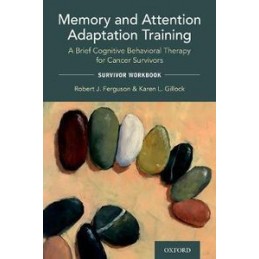- Reduced price

Order to parcel locker

easy pay


 Delivery policy
Delivery policy
Choose Paczkomat Inpost, Orlen Paczka, DHL, DPD or Poczta Polska. Click for more details
 Security policy
Security policy
Pay with a quick bank transfer, payment card or cash on delivery. Click for more details
 Return policy
Return policy
If you are a consumer, you can return the goods within 14 days. Click for more details
Data sheet
Reference: 92109
Author: Robert Ferguson
A Brief Cognitive Behavioral Therapy for Cancer Survivors: Clincian Manual
Reference: 92109
Author: Robert Ferguson
A Brief Cognitive Behavioral Therapy for Cancer Survivors: Clincian Manual
